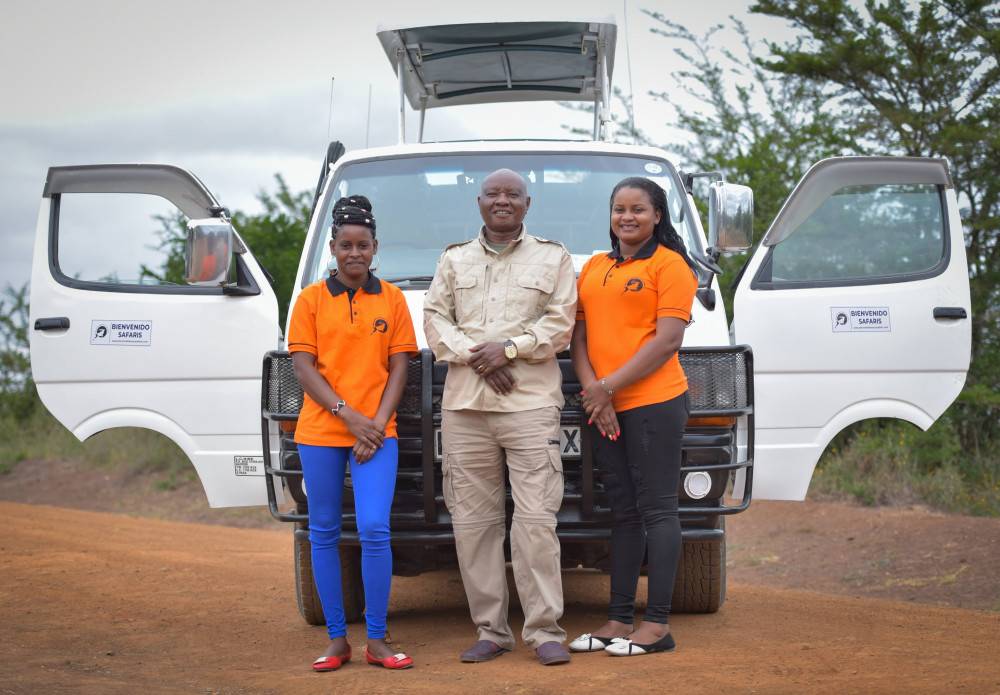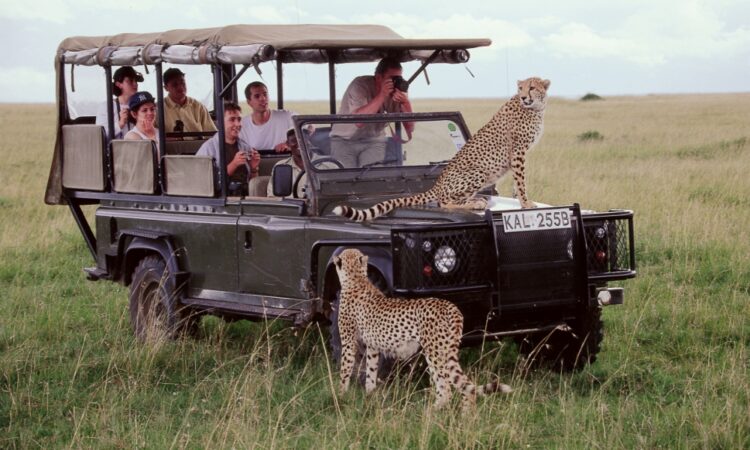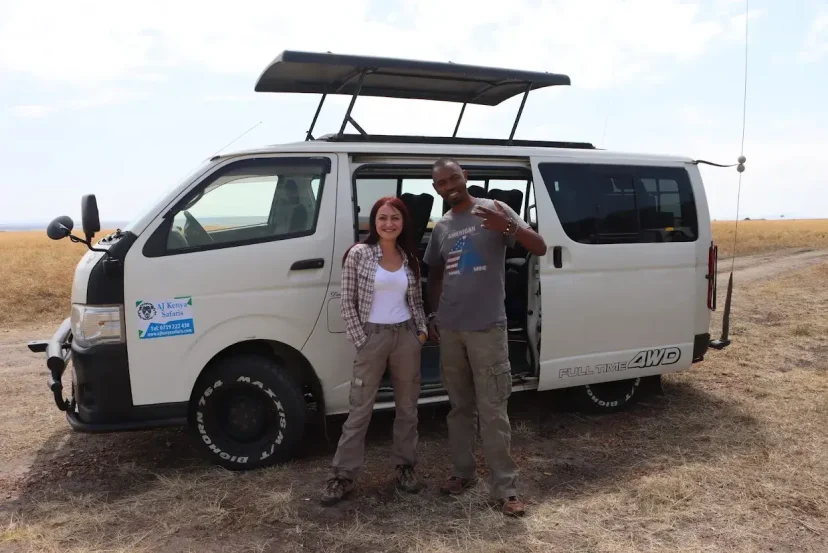Great Info On Picking Airport Transfer To Mombasa
Wiki Article
What Safety And Security Precautions Should I Be Aware Of Prior To A Trip To Mombasa Kenya?
Be aware of security and safety considerations when traveling to Mombasa, Kenya is vital to ensure a pleasant and safe trip. Here are a few key points you should be aware of.
1. General Safety
Be informed: Make sure to keep up with the most recent local news and also any travel warnings issued by your country.
Register with Your embassy: If necessary, register at the embassy of your country in Kenya so they can provide assistance in times of need.
2. Health Precautions
The importance of vaccinations is to stay up-to date with routine vaccinations. Think about additional vaccines such as Hepatitis A and B, as well as Typhoid or Yellow Fever.
Mombasa's malaria is an endemic. Make sure you take antimalarial medicine, apply insect repellents, lie down in mosquito nets and wear long-sleeved clothing at night.
Food and water safety. Drink bottled water and stay clear of the use of ice. Street food is not recommended.
3. Personal Security
Be cautious when walking in the dark. Be sure to stay in areas that are well lit with a lot of people. Avoid walking at night on the beaches or in areas that are remote.
Secure your Valuables. Use hotel safety box for depositing valuables including passports and cash. Beware of displaying expensive items such as electronic gadgets and jewelry.
Choose Reliable Transport: Use certified taxis, ride hailing service, or transportation arranged by your hotel. Avoid unmarked taxis.
4. Local Laws and Customs
Respect the local culture. Dress modestly when you visit religious sites. Be aware local customs.
Kenyan drug laws are strict and are punishable by harsh penalties. Do not use illegal drugs.
Photographers should always request permission before taking pictures of individuals, military or government structures, particularly in rural areas.
5. Beach and Water Safety
Swimming safely means being aware of local advice on currents and conditions. Make sure you are in designated swimming areas.
Marine Wildlife: Be wary of marine life like sea urchins and jellyfish. If you walk along the beach, wear appropriate footwear.
6. Crime Prevention
Petty crime: In busy areas, pickpocketing and bag-snatching can be a possibility. Be vigilant and keep an eye on your belongings.
Scams: Be cautious of strangers offering overly generous assistance or deals which appear too appealing to be real. Make sure to use licensed tour operators.
It is important to know emergency numbers in your area for police (999) as well as fire (999) and ambulance (999). The contact details of the embassy or Consulate of your nation should be readily available.
7. Natural Hazards
Weather: Mombasa has a tropical climate that is susceptible to floods and heavy rains especially in the rainy months (April-June and October-November). Stay informed about weather forecasts.
Sun Protection: Guard yourself from sunburns and heat exhaustion by wearing hats, applying sunscreen and staying hydrated.
8. Travel Insurance
Comprehensive Insurance coverage. Make certain you have a travel insurance policy that covers emergency medical situations, theft, loss, or travel interruptions. Make sure your insurance policy covers water sports, for instance.
With these safety precautions you will be able to relax and enjoy your Mombasa vacation. Read the top kenya mombasa train for website info including kenya safari tours, trips to kenya, luxurious african safari, facts about kenya, safaris beach, africa tours, africa tours and safaris, tours safari africa, mombasa safari packages, mombasa tours and more.

What Are The Weather Considerations Must I Be Aware Of Before A Trip To Mombasa Kenya?
It is important to understand the weather patterns in Mombasa prior to packing your bags and get the most out of your time off. Here are some essential aspects to keep in mind.
1. Climate Overview
Mombasa has a tropical climate with high humidity and temperatures all year round. You can expect warm weather, with temperatures typically ranging from 24degC (75degF) to 32degC (90degF).
2. Seasons
The Hot and Humid Season (November to April): This period is characterized by high temperatures and humidity. The peak season for tourism is January and December.
Long rains from April to June : Heavy rainfall and storms are typical during the season of rain. The roads may be muddy, making it difficult to travel. This is a low-season for tourism.
The coldest time of the year is from June to October during which temperatures and humidity are at their lowest. The weather is ideal for outdoor activity.
Short Rains (October through November) The short rain showers that are less intense occur during this period. The rains tend to be brief, and then they are followed by sun.
3. Tips for packing
Wear lightweight, breathable clothes like linen or cotton to keep cool during hot conditions.
Rain Gear: When traveling during rainy weather it is recommended to bring an umbrella and a waterproof jacket as well as some shoes that are waterproof.
Sun Protection: A sunscreen that is high in SPF, wide-brimmed caps, sunglasses, light clothing, and covering your skin with light clothes can shield you from strong sunrays.
Wear your swimming attire to the beach or the hotel pool.
4. Weather-specific activities
Beach Time: The most popular season to go on the beach is between June and October during a time during which the weather is nice and the sea conditions are excellent.
The crystal clear, calm waters between November and March is perfect for snorkeling or diving, as well as other water sports.
Wildlife viewing. The cooler seasons (June-October) are also great for wildlife excursions or safaris because the temperatures are less uncomfortable.
5. Health-related Considerations
Hydration: Keeping hydrated is vital for those living in the hot, humid climate. Drink plenty of water particularly if you're taking a walk in the sun.
Health-related illnesses that are related to heat: Be aware of the possibility of heat exhaustion and heatstroke. Wear loose clothes, take breaks under the shade, and avoid vigorous exercise during the hottest temperatures.
6. Travel Adjustments
Traveling in the rainy season If you are planning to travel during the long rains be prepared for potential interruptions in travel. Certain roads might be closed, and outdoor activities could be limited.
Tropical rains may cause delays to flights. Make sure you keep track of travel plans and make plans for contingencies.
7. Environmental Considerations
Natural hazards. Be aware of the risks that can be posed by heavy rain. Be aware of local weather forecasts and follow safety recommendations.
Be conscious of tides when making plans for beach activities. They can shift dramatically. Be sure to check the tide schedule for your locale before swimming or beachcombing.
When you know these weather factors, you can better plan your holiday activities ensure you are packing appropriately and remain safe during your time in Mombasa. Follow the top rated Kenya safaris for website advice including african safari tours kenya, tours and safaris, kenya africa travel, africa tours, trips to kenya africa, africa tours and safaris, tour and travel company, safari trips in africa, tour agents in kenya, travel tour companies and more.

What Financial Planning Considerations Should I Be Aware Of When Planning A Holiday In Mombasa?
If you are thinking of a trip to Mombasa, Kenya be sure to plan your finances well. This will ensure that your trip is enjoyable. Remember these essential financial considerations:
1. Budgeting
Accommodation: Do your research and book your accommodation in advance. The cost of lodging varies based on the area and type.
Include the costs of airfares, local transport (tuk-tuks and matatus), car rental, and any excursions.
Costs for eating out food, snacks and meals. Costs can vary from budget-friendly local eateries to expensive restaurants.
Plan activities and tours. This includes entrance charges for the attractions as well as guided tours, as in addition to activities such as safaris as well as cultural tours, water sports and much more.
2. Currency and Exchange rates
Kenyan Shilling is the local currency. Learn about the exchange rate.
Currency Exchange: Exchange of money is recommended to be done through reliable banks or exchange centers. Avoid exchanging cash on the streets.
ATMs are all over Mombasa. Check that your card is compatible for international withdrawals.
3. Payment Methods
Cash is useful for small transactions, tipping or in places where cards are not accepted.
Major credit cards are accepted at restaurants, hotels and other shops. Contact your bank regarding your travel plans to stop your card from being blocked.
Mobile Payments M Pesa is the most used mobile payment in Kenya. system. It's a good option if you plan to use a SIM card in Kenya.
4. Make money by using these cost-saving tricks
Travel off-Season. You can save on hotel and airfare by traveling in the shoulder season or the low season (April-June and October-November).
Make sure to book early for the best prices on accommodation and flights.
Local Eateries: Eat at local restaurants and food stalls to enjoy a more authentic and budget-friendly experience.
5. Tipping
Tipping is widespread in Kenya. If service isn't included, you should tip 10% at restaurants. Make sure you tip the staff of your hotel as well as drivers and guides.
It is nice to give small amounts of money in local currency. For instance, porters can be tipped about KES 50 to 100 per bag, and housekeepers KES 100 per day.
6. Emergency Funds
Reserve funds : Make sure that you have an emergency fund available and also are able to access additional funds via credit card or debit card if necessary.
Travel Insurance: Purchase comprehensive insurance for travel, that protects you from medical emergencies aswell in trip cancellations. It also shields you from theft and loss.
7. Security
Safeguarding Valuables: Use hotel safes to keep passports, cash and other valuables. Be cautious when using an ATM especially at night.
Avoid Carrying Big Sums. Don't carry huge cash sums with you. Divide your money and cards among a wallet as well as an area that is secure.
8. Local Transactions
Local markets are a popular spot to trade. Treat it with respect and good humor, and try to negotiate a fair cost.
Receipts and Record: Keep records of all major transactions and purchases. This can be helpful in tracking budgets and in case of disputes.
9. Understanding Fees
It is possible to check with your bank if there are any fees associated with international withdrawals. Certain ATMs may charge you a fee for when you withdraw funds from a bank account in another country.
Currency Conversion Costs: Learn the conversion costs for currencies that you may be charged by your bank when using your credit or debit card abroad.
Take note of these elements of financial planning to manage your expenses and have an enjoyable trip to Mombasa. Read the recommended Airport transfer to Mombasa for website recommendations including african safari excursions, kenya tours and safaris, mombasa tours, tour agents in kenya, african safari tours kenya, kenya safari beach, kenya travel packages, tours and safaris, holiday packages mombasa, holiday packages mombasa and more.
